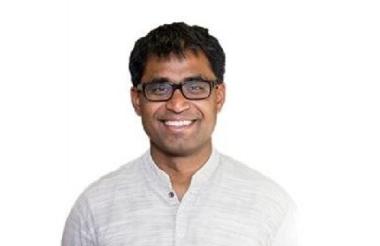When institutional donors, like the UK government, treat development charities as “subcontractors” it means they miss out on expertise, Oxfam’s chief executive warned yesterday.
Danny Sriskandarajah was giving evidence to the International Development Committee’s inquiry into the philosophy and culture of aid, where he told MPs that it feels as though, despite being a large charity, it is “not a particularly important or influential part” of the system.
Elsewhere, MPs were urged to make sure voices from grassroots charities were heard.
Sriskandarajah told the committee that being treated like a subcontractor means “we can't bring all that we could bring, given our global networks and networks here in the UK, our know how and expertise” to discussions.
He added: “I would argue that contracting civil society partners misses out the role that civil society could play that goes well beyond the delivery of the contract.”
He called for a “reset” to the relationship to encourage more partnership working.
“There are very good examples of where that's done in a more sort of participatory way and where it involves lots of other partners,” he said. “And there are good examples of collaborations that bring in other stakeholders, philanthropic foundations, or big NGOs. But I think in turn when it comes to, official aid, it still remains the case, I think that donors set the agenda.”
Sriskandarajah also praised some of the partnership working in the past. However, he said he was concerned that it was happening less.
“I worry some of that is slipping away in this sort of rush towards seeing us increasingly as subcontractors,” he said. “I think if we are to get the most impact, and leverage the true diversity of roles that civil society can play, I think a reset on that, on that partnership approach would be would be good.”
He also said he was concerned that development charities are not seen as a positive thing by the government.
“I worry that instead of being seen as assets of projecting a global Britain,” he said. “[And of] Britain being a force for good, we’re being sidelined.”
‘Unintentionally hindering people’
Gloria Soma, executive director at Titi Foundation, a grassroots organisation in South Sudan, told the committee that institutional donors don’t properly understand what is happening on the ground.
She said that although “donors play a critical role in promoting and supporting partnerships”, they “do struggle to understand the issues”.
“This means that they sometimes unintentionally hinder rather than assist beneficiaries or stakeholders,” she said.
She added: “From where we sit as local actors, the donors usually set the agenda based on their own priorities of interests.”
These interests, she said, could be things like counter terrorism, counter migration or promoting trade deals.
She called for there to be more “open conversations”
She said that “we're able to gather that information” about what is happening on the ground, but “when that information came through from a local organisation, it was never recognised”.
However, when the same information comes from an intermediary or larger organisations it was taken seriously.
Related articles












